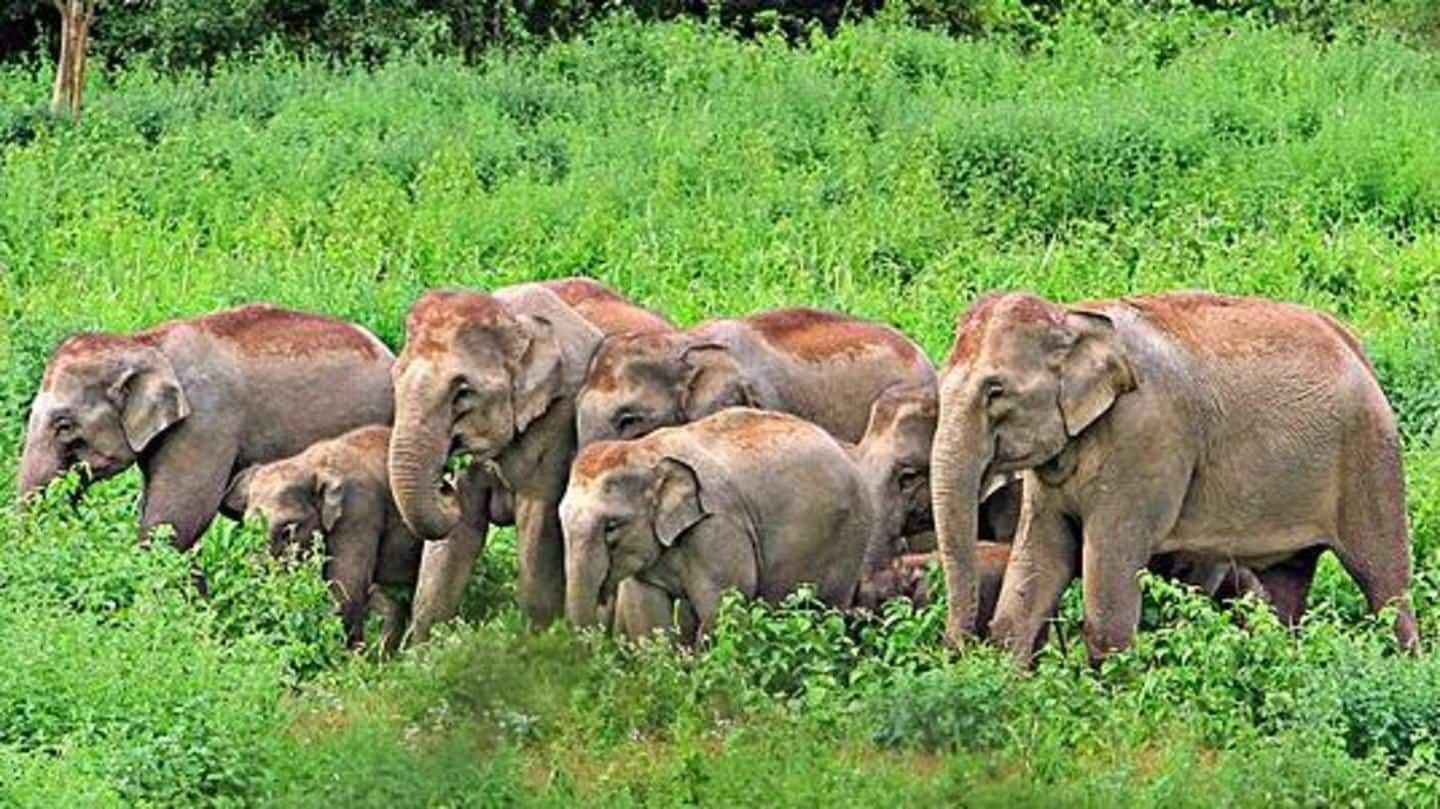
Human-elephant conflicts in Meghalaya claimed 25 lives in 5 years
What's the story
Nearly 10,000 cases of conflicts between humans and elephants have been reported from Meghalaya in the past five years, claiming the lives of 25 people and causing widespread damage to crops, the Comptroller and Auditor General of India said. The state is home to around 1,800 elephants and the Garo Hills region itself accounts for approximately two-thirds of such conflicts, said the CAG report.
Information
Over 9,622 cases of human-elephant conflicts were registered
The report was tabled by CM Conrad K Sangma in the Assembly. "Over 9,622 cases of human-elephant conflicts were registered with the forest department, resulting in death of 25 persons, injury to 22 persons, and damage of crops in about 4,009 ha area," it said.
Loss
Over Rs. 4 crore paid to families as ex-gratia
The CAG report, covering the period between 2012 and 2017, stated that over 6,500 cases were registered in the Garo Hills region, including the Balpakram National Park. Around 2,500 cases were reported from the Khasi Hills region. An amount of Rs 4.41 crore was paid as an ex gratia payment to villagers for loss of life, damage to properties and agricultural crops, it said.
Conflicts
To minimize conflicts, various proposals were made
To minimize these conflicts, an area of close to 3,500 sq km in South Garo Hills district was notified as Elephant Reserve (ER) under "Project Elephant" in 2001. A proposal to establish another Elephant Reserve in Khasi Hills and Ri Bhoi Districts (1,331 sq km) was accorded in-principle approval in June 2008, but was not finalized till the CAG report was compiled, it said.
Funds
Meghalaya missed out on additional funds from the Center
Meghalaya Forest Department has put in "little efforts" to communicate that an ER doesn't change the legal status of ownership of land, the report said, adding, this led to lack of consent from the owners in the Khasi Hills region. Owing to this delay, the state missed out on additional funds from the Center to mitigate human-elephant conflicts in a planned manner, it said.
Wildlife
CAG rapped Meghalaya government for "destruction" of wildlife habitats
The CAG has also rapped the Meghalaya government for "destruction" of wildlife habitats in the Shallang region, an area frequented by the tuskers. "Construction activities, heaps of coal stocks, and deforestation could be noticed all along the area. Fresh coal stock was found lying/dumped in these forest areas. All these have reduced the food and water availability for wildlife," the report said.